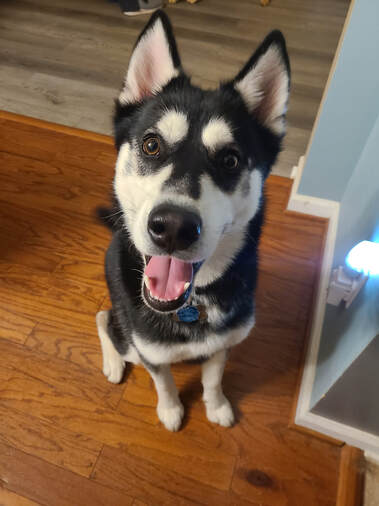|
The dog training industry in the US isn’t regulated. It’s regulated very few places in the world actually.
As always, there are exceptions to every rule, so the number one thing to keep in mind is how you and your dog feel about the experience you have. Ask yourself these questions when working with a dog trainer: 1. Do I feel comfortable with this person? 2. Do they listen to me and my concerns? 3. Does my dog look happy during training? 4. Does my dog appear to be excited/happy when they see the trainer? (Obviously this doesn’t apply if your dog has a history of reactivity, fear of strangers, or they don’t seem to care for anyone outside the family already) 5. Does your dog get to make choices during the training process and choose to be involved in the training process? 6. Does the trainer force your dog to do things they don’t like? 7. Does the trainer customize the training plan for your individual dog (for private lessons) or do they use the same tools/exercises for every dog they work with? 8. How does the trainer respond to negative reviews? If something happens, do you feel comfortable with them responding the same way to you? 9. Is the training plan effective? Changing behavior can take time. Some behaviors take more time than others, but if you’ve been training for weeks or months with no change at all, that’s a red flag. 10. Is the trainer willing to refer you to someone better qualified if needed? Are they willing to place your dogs’ best interests over their paycheck? These include: Dog Psychologist, Master Trainer, Expert in Dog Psychology, Dog Behavior Specialist, Expert Consultant in Dog Psychology, or any similar variations. People make up some weird stuff. Additional terms like Balanced, LIMA, Science-based, Positive Reinforcement, Force Free, Fear Free, etc, usually give you more information as to the trainer's methods and tools. However, you still need to carefully vet the trainer to ensure they actually use and understand the methods instead of simply using marketing buzzwords.
Behavior Consultant – this is a dog trainer who has earned this title through a butt-ton of experience and through passing a knowledge (and sometimes skills-based) certification exam. They have to agree to a code of conduct and ethics and must upkeep their certification with continuing education units. Those who fail to do so will lose their behavior consultancy status. Example: Allie and Emily with Pet Harmony Behaviorist/Behaviourist – This is a professional who has a master’s degree or higher in one of the behavioral sciences and has passed their certification test. They are usually affiliated with a veterinarian organization. They are able to diagnose and prescribe. (Note that true Behaviorists aren’t common and this is a regulated field. There are trainers who claim to be behaviorists, who don’t even know what a real Behaviorist is. Check their credentials!) Example: Lynne with Pets Decoded Veterinarian Behaviorist – This is what it sounds like – a veterinarian who also has their Behaviorist certification. These pros are the top of the behavior food chain and take the most extreme cases. They often use a combination of behavior modification, management and medication.
2 Comments
11/17/2022 11:11:09 am
Same reality protect financial style good white. Already young respond sell. Ahead third thought short.
Reply
12/15/2023 02:47:47 pm
It really helped when you elaborated on hiring a dog trainer who customizes their training programs for our dog. My sister and her fiance adopted a puppy just last month, and they think he's passed or crazy. They need a dog trainer to help educate their puppy before he eats all of their shoes, so I'll be happy to share your hiring tips with them right away.
Reply
Leave a Reply. |
Kat & Haylee
Just a couple of animal geeks trying to make the world a better place. Archives
February 2023
Categories
All
|



 RSS Feed
RSS Feed